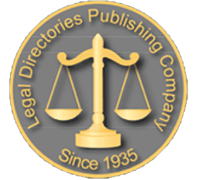Business Litigation Lawyer: What They Do & When to Hire
Nothing causes a business owner’s stomach to drop quite like receiving a formal legal notice. The language is confusing, the threats are serious, and the path forward feels completely uncertain. This is where clarity becomes your greatest asset. Understanding the legal process demystifies it, replacing fear with a sense of control. A business litigation lawyer is your expert guide through this complex world, translating the jargon and managing the procedures so you can focus on your company. We’ll break down every stage, from the initial consultation and fee structures to settlement negotiations and what happens if your case goes to court.
Key Takeaways
- Engage Legal Counsel Proactively: A business litigation lawyer is a strategic partner who helps manage risks related to contracts, IP, and employees. Involving them early can help you prevent disputes before they escalate into costly lawsuits.
- Prioritize Florida-Specific Trial Experience: When choosing an attorney, focus on their specific experience with Florida business law and their proven record in the courtroom. This ensures they are prepared to fight for you if a favorable settlement cannot be reached.
- Be an Active Partner in Your Legal Strategy: A successful outcome depends on your collaboration. Strengthen your case by organizing documents, setting clear objectives, and maintaining open communication with your legal team from start to finish.
What Does a Business Litigation Lawyer Do?
When you run a business, disagreements are almost inevitable. A business litigation lawyer is the professional you call when those disagreements turn into serious legal disputes. Their main job is to represent your company’s interests, whether that means negotiating a settlement out of court or fighting for you in front of a judge. They are your strategic partners in resolving conflicts that could otherwise disrupt your operations, damage your reputation, or hurt your bottom line. Think of them as the specialists who step in to manage legal challenges so you can focus on running your business. Let’s look at the specific types of problems they solve.
Common Business Disputes They Handle
Business litigation covers a wide range of conflicts. Your lawyer can step in to handle everything from straightforward breach of contract cases—where one party doesn’t hold up their end of a deal—to more complex partnership and LLC disputes. They also tackle issues involving non-compete agreements, intellectual property theft, and even cases of fraud or forgery within the business. Essentially, if a dispute threatens your company’s stability or assets, a business litigation attorney has the expertise to manage the situation and protect your interests.
Contracts and Partnerships
Contracts are the foundation of your business relationships, but when they’re broken, it can cause major problems. A business litigation lawyer is essential for navigating breach of contract claims. They can also help resolve disputes between business partners, which can get personal and complicated quickly. Whether you’re dealing with a vendor who didn’t deliver or a partner who violated your operating agreement, an attorney works to enforce your rights. Their experience in both settlement negotiations and civil court allows them to find the most effective path forward for your company.
Intellectual Property
Your company’s most valuable assets might not be physical. Intellectual property—like your brand name, inventions, trade secrets, or unique business processes—is crucial to your competitive edge. When another person or company infringes on your IP, a business litigation lawyer can take action to stop them and recover damages. They work to safeguard your creative and intellectual assets, ensuring that your hard-earned ideas remain yours. Protecting your IP is fundamental to preserving your company’s long-term value and market position.
Employment Issues
Disputes with employees can be particularly sensitive and legally complex. Business litigation lawyers often represent employers in a variety of employment-related conflicts. This can include claims of wrongful termination, discrimination, or disputes over wages and hours. They also defend companies in matters before government agencies like the Equal Employment Opportunity Commission (EEOC). An attorney can help you address these issues properly, ensuring you comply with state and federal labor laws while protecting your business from potentially damaging claims.
Fraud and Financial Claims
Unfortunately, businesses can become targets of fraud from both internal and external sources. A business litigation lawyer handles cases involving many types of financial misconduct, including consumer fraud, bank fraud, or even embezzlement by an employee. They help you investigate the situation, take legal action against the responsible parties, and work to recover your financial losses. Navigating the complexities of these claims requires a deep understanding of financial regulations and a strategic approach to litigation. Your attorney acts as your advocate to protect your company’s financial health and integrity.
When to Hire a Business Litigation Lawyer
Knowing when to call a lawyer can feel like a tough judgment call. As a business owner, you’re used to solving problems and wearing multiple hats, and it’s tempting to try and handle disputes on your own to save money. But some situations carry risks that are too high to manage without professional legal guidance. Going it alone in a complex legal dispute can jeopardize everything you’ve worked so hard to build.
Hiring a business litigation lawyer isn’t an admission of failure; it’s a strategic move to protect your company’s interests. The legal system has its own set of rules, strict deadlines, and procedures that can easily trip up even the most savvy entrepreneur. An experienced attorney understands this landscape and can guide you through it, handling the legal complexities so you can stay focused on running your business. The question isn’t just about whether you can handle a dispute, but whether you should. Recognizing the signs that you need professional help is the first step toward a successful resolution.
Signs Your Business Needs Legal Help
The most obvious sign you need a lawyer is when you receive a formal legal document, like a lawsuit summons, a complaint, or a subpoena. These aren’t suggestions; they are legal demands that require a specific, timely response. Another clear signal is receiving a demand letter from another party’s attorney. This indicates the other side is serious and has already sought legal counsel. Less obvious signs include a partnership dispute that has become hostile, a client refusing to pay a significant invoice, or an employee threatening legal action. Litigation is a lengthy and complicated process, and getting an expert involved early can prevent costly missteps and help you prepare for what’s ahead.
Assess Your Case’s Complexity
Not all disagreements require a full-blown legal response, but complexity is a key factor in making that decision. If your dispute involves a straightforward, small-dollar amount, you might handle it in small claims court. However, if the issue involves interpreting a dense contract, navigating regulatory compliance, or dealing with multiple parties, it’s time to call a professional. Cases involving intellectual property, shareholder disagreements, or breaches of fiduciary duty are inherently complex. Understanding the different phases of business litigation can help you appreciate the procedural challenges ahead. An attorney can assess the nuances of your situation and determine the best path forward.
Understand the Financial Stakes
Take a moment to calculate what’s truly at risk. The financial stakes go beyond the dollar amount written on an invoice or in a contract clause. Consider the potential long-term impact on your business. Could this dispute damage your company’s reputation? Could you lose key clients or business relationships? What are the potential costs if you lose the case, including the other party’s legal fees? Some legal battles can take months or even years to resolve, depending on the financial stakes involved. A consultation with an attorney can help you perform a cost-benefit analysis to decide if pursuing or settling a claim is the most financially sound decision for your business.
Recognize Time-Sensitive Deadlines
The legal system runs on strict deadlines. If you’re served with a lawsuit in Florida, you generally have only 20 days to file a formal response. Missing that deadline can lead to a default judgment, meaning you automatically lose the case without ever getting a chance to present your side. The litigation process is full of these critical dates for filing motions, exchanging evidence (a process called “discovery”), and appearing in court. Keeping track of this schedule while also running your business is a significant challenge. An experienced Florida business attorney will manage your case calendar to ensure every deadline is met, protecting your right to a fair hearing.
How to Choose the Right Business Litigation Lawyer
Facing a business dispute can feel overwhelming, and choosing the right legal partner is one of the most important decisions you’ll make. The attorney you select can significantly influence the outcome of your case, so it’s worth taking the time to find someone who truly fits your needs. Think of it less like hiring a service and more like finding a strategic ally who will guide you through a complex process.
The key is to look beyond a fancy website or a long list of services. You need an attorney with the right experience, a solid reputation, and an approach that aligns with your goals. When you’re vetting potential lawyers, you’re looking for a combination of deep legal knowledge and practical, real-world effectiveness. This means finding someone who not only understands the law but also understands your business and the specific challenges you face. Our firm handles a wide range of business and real estate litigation, and we know that the right fit is everything. The following points will help you identify what to look for to ensure you have a skilled advocate in your corner.
What to Look For in an Attorney
When you start your search, focus on a few core qualities: experience, reputation, and communication style. An attorney with a strong track record in business disputes has likely handled cases similar to yours and can anticipate potential roadblocks. Look for client testimonials, but also consider peer reviews and their standing with the state bar. Most importantly, evaluate their communication. During your initial consultation, do they listen to your concerns and explain complex legal ideas in a way you can understand? A great lawyer sets clear expectations about the process, potential outcomes, and costs. You need a responsive partner who keeps you informed, not one you have to chase for updates. The right attorneys will make you feel heard and confident in their ability to handle your case from day one.
Relevant Industry Experience
While any competent business lawyer understands contracts, one with experience in your specific industry brings a major advantage. They’re already fluent in the language of your business, from its operational challenges to its regulatory environment. For instance, a real estate dispute requires a different skill set than a tech startup conflict. An attorney who knows your industry won’t need to spend billable hours learning the basics. They can get right to the heart of the matter, crafting a strategy that reflects the realities of your market. When you interview potential lawyers, ask them to describe their experience with businesses like yours. This specialized insight is not just a bonus—it’s a key part of building an efficient and effective case.
Board Certifications and Credentials
Credentials like board certification are a clear, objective measure of an attorney’s expertise. In Florida, this is the highest level of evaluation by The Florida Bar, and it’s a big deal. To become board certified, a lawyer must have extensive experience in their specialty, pass a rigorous exam, and receive positive evaluations from their peers and judges. It’s a sign that they have dedicated their career to mastering a specific area of law. While not every great lawyer is board certified, choosing one who is provides an extra layer of confidence. It confirms you’re working with a professional who has met the state’s most stringent standards for knowledge, skill, and professionalism, taking the guesswork out of assessing their qualifications.
Proven Trial Experience
While most business disputes settle out of court, you should always hire a lawyer who is ready, willing, and able to go to trial. An attorney with a strong litigation background and proven courtroom experience is a powerful asset. Their readiness for trial shapes the entire legal strategy, from discovery and depositions to negotiations. Opposing counsel will take your case more seriously, which often leads to more favorable settlement offers. A lawyer who is comfortable in court isn’t just a better advocate if you end up there—they’re a more effective negotiator from the very beginning. Ask potential attorneys about their trial experience and their philosophy on when to settle versus when to fight. You want a strategic litigator, not just a paper-pusher.
Florida-Specific Legal Knowledge
Business and real estate laws can differ dramatically from one state to another. Hiring a lawyer with deep, specific knowledge of Florida’s legal landscape is non-negotiable for any dispute here. They will be intimately familiar with local court procedures, state statutes, and the recent legal precedents that could make or break your case. This local expertise is more than just knowing the law; it’s about understanding the local legal community and the tendencies of judges in specific jurisdictions. An expert in Florida business law can craft strategies tailored to our state’s unique system, anticipating challenges and leveraging opportunities that an out-of-state attorney would likely miss. This home-field advantage is critical whether your business is in Orlando, Tampa, or anywhere across the state.
How Legal Fees Work
Understanding how you’ll be billed is one of the most important parts of hiring a lawyer. Legal costs can feel intimidating, but a transparent conversation about fees from the start builds a strong foundation for your attorney-client relationship. Most law firms use a few common fee structures, and knowing the difference will help you plan financially and choose the right attorney for your business needs. Let’s walk through the most typical arrangements so you know exactly what to expect.
Hourly Rates
The most common fee structure in business litigation is the hourly rate. With this model, you pay for the actual time your attorney spends working on your case. This includes everything from drafting documents and making phone calls to court appearances and legal research. Rates can vary significantly based on an attorney’s experience and location. This approach is often used for complex disputes where the total time commitment is difficult to predict from the outset. During your initial consultation, be sure to ask about the hourly rates for any attorneys or paralegals who might work on your case.
Flat Fees
A flat fee is a single, upfront price for a specific legal service. This model offers predictability, as you know the total cost from day one, with no surprises. Flat fees work best for straightforward, well-defined tasks where the attorney can accurately estimate the time and effort required. For example, you might pay a flat fee for services like drafting a standard contract, forming a new business entity, or handling an uncontested real estate closing. This arrangement is great for building trust and is ideal for clients who need to stick to a strict budget for a particular legal task.
Retainers
A retainer is an advance payment you make to a law firm to secure their services. Think of it as a down payment on your legal fees. The firm holds this money in a special trust account and deducts their hourly fees from it as they work on your case. You will typically receive regular, itemized statements showing the work performed and the amount drawn from the retainer. If the retainer runs low, you may be asked to replenish it. This ensures your lawyer is available to handle your case and covers initial costs without delay.
Other Potential Costs
Beyond your attorney’s fees, litigation often involves other expenses. These are out-of-pocket costs necessary to move your case forward. Common examples include court filing fees, charges for expert witnesses, deposition costs, and expenses for travel or document production. Factors like the complexity of your case and your lawyer’s reputation can also influence the overall cost. It’s important to discuss these potential expenses with your attorney early on so you can have a complete picture of the financial commitment. A clear understanding of all potential costs is key to managing your business litigation budget effectively.
Create Your Litigation Budget
Facing a business dispute requires you to make smart, informed decisions to protect your company’s financial health. Creating a litigation budget is a crucial step in this process. Start by having an open conversation with your prospective attorney about the estimated total cost of your case, including all fees and potential expenses. This discussion will help you understand the financial stakes and plan accordingly. A well-planned budget allows you to manage your resources effectively throughout the legal process and helps you and your attorney align on a strategy that makes sense for your business. You can contact us to schedule a consultation and discuss your specific needs.
What to Expect from the Litigation Process
Facing a lawsuit can feel overwhelming, but understanding the process can make it much more manageable. Litigation isn’t a single event; it’s a series of structured phases designed to resolve a dispute fairly. While every case is unique, most follow a predictable path from the initial consultation to a final resolution. Think of it as a roadmap your attorney will guide you through, step by step.
The journey typically begins with a deep dive into your case, followed by attempts to resolve the issue before ever stepping into a courtroom. If an early agreement isn’t possible, both sides will formally exchange information to build their arguments. Throughout this process, opportunities to negotiate a settlement will arise. Only if all other avenues fail does the case proceed to trial. Having an experienced business litigation attorney by your side ensures you are prepared for each stage and can make informed decisions that protect your interests.
Your Initial Case Evaluation
The very first step is a thorough case evaluation. This is where you and your attorney will sit down to discuss every detail of your dispute. You’ll share your side of the story, provide any relevant documents like contracts or emails, and outline your desired outcome. Your lawyer will listen carefully, ask clarifying questions, and begin to assess the legal strengths and weaknesses of your position.
This initial meeting is crucial for building a solid foundation for your legal strategy. Your attorney will identify potential legal claims, consider the other party’s likely arguments, and give you an honest perspective on possible outcomes. It’s a collaborative process designed to ensure you understand your options and can decide on the best path forward together.
Pre-Litigation Strategy
Not every business dispute needs to end up in a full-blown lawsuit. Before filing anything with the court, a smart strategy often involves pre-litigation actions. This phase is all about attempting to resolve the conflict efficiently and cost-effectively. It typically starts with your attorney drafting and sending a formal demand letter to the opposing party. This letter clearly states your position, the legal basis for your claim, and what you’re seeking as a resolution.
This step serves two purposes: it formally puts the other side on notice and opens the door for negotiation. Many disputes are settled at this stage, as it gives both parties a chance to find a solution without the time and expense of court proceedings. Exploring alternative dispute resolution methods, like mediation, is also a common and effective pre-litigation strategy.
Discovery and Investigation
If pre-litigation efforts don’t resolve the issue, the case moves into the discovery phase. This is the formal, court-supervised process where both sides exchange information and evidence. Think of it as the official fact-finding mission. The goal is to uncover all the relevant details so there are no surprises down the road. This process ensures that both you and the opposing party have access to the same information to build your cases.
Discovery involves several tools, including interrogatories (written questions that must be answered under oath), requests for documents (like contracts, emails, and financial records), and depositions (in-person interviews where witnesses give sworn testimony). While it can be the most time-consuming part of litigation, it’s absolutely essential for developing a strong and well-supported legal argument.
Settlement Negotiations
The vast majority of business lawsuits never actually go to trial. Instead, they are resolved through a settlement. Negotiations can happen at any point during the litigation process—sometimes even on the courthouse steps. After the discovery phase, both sides have a much clearer picture of the evidence and the strengths of each other’s cases, which often makes it an ideal time to negotiate.
During settlement talks, your attorney will advocate on your behalf to reach an agreement that meets your objectives. A successful settlement is a compromise that both parties can live with, allowing you to avoid the uncertainty and additional costs of a trial. Your lawyer will advise you on any offers and help you weigh the pros and cons, but the final decision to accept a settlement is always yours.
Going to Court
If a fair settlement cannot be reached, the final step is to take the case to trial. This is where you present your arguments and evidence before a judge or jury, who will then render a final, binding decision. During the trial, your attorney will present your case through opening statements, witness testimony, and cross-examinations, and will make a closing argument summarizing why the facts and the law are on your side.
Going to court requires meticulous preparation and a deep understanding of courtroom procedures and rules of evidence. While it represents the end of the litigation journey, the goal of all the prior phases is to build a case so strong that you are in the best possible position to succeed at trial. The experienced attorneys at Legal Counsel, P.A. are prepared to advocate for you every step of the way.
How to Work With Your Attorney
Hiring a lawyer is the first step, but building a strong, collaborative relationship is what truly sets your case up for success. Think of your attorney as a strategic partner. The more effectively you work together, the better your chances of reaching a favorable outcome. This partnership requires clear communication, shared goals, and mutual respect. By taking an active role in the process, you empower your legal team to represent your interests to the best of their ability and help keep the case moving forward efficiently. It’s not about passively handing over your problem; it’s about actively participating in the solution. Your insights into your business and the industry are invaluable assets that, when combined with your attorney’s legal expertise, create a formidable team. This proactive approach not only improves your case’s prospects but also gives you a greater sense of control during what can be a stressful and uncertain time. A successful outcome is the result of a dedicated, two-way effort between you and your legal counsel.
Gather Your Key Documents
Before your first meeting, pull together every document related to your dispute. This includes contracts, emails, invoices, meeting notes, and any other correspondence. Having all your paperwork organized from the start helps your attorney quickly understand the situation and saves you money on billable hours they would have spent on administrative tasks. A well-organized file allows your lawyer to immediately begin building a strong case. This preparation is one of the most effective ways you can strengthen your business litigation case and give your legal team the tools they need to get to work. Think of it as creating the foundation upon which your entire legal strategy will be built.
Establish Clear Communication
Open and consistent communication is the foundation of a good attorney-client relationship. From the beginning, discuss how you’ll share updates. Will it be weekly emails, bi-weekly phone calls, or something else? Don’t hesitate to ask questions if you don’t understand a legal term or a step in the process, like discovery or filing motions. Your attorney should keep you informed about major developments, but you also have a responsibility to be responsive and provide information when they need it. A clear communication plan ensures you’re always on the same page and helps you feel more in control as your case progresses. This mutual understanding prevents surprises and builds the trust necessary to work through complex legal challenges together.
Set Clear Objectives
What does a successful outcome look like for you? Is it recovering a specific amount of money, stopping a competitor’s actions, or simply resolving the issue as quickly as possible? Be upfront with your attorney about your goals. Understanding the litigation timeline is vital, and your objectives will shape the entire legal strategy, from initial negotiations to a potential trial. Your lawyer can provide a realistic perspective on what’s achievable and outline the potential risks and rewards of different approaches. Setting these clear objectives together ensures that you and your legal team are working toward the same finish line, making every decision more focused and purposeful.
Build Your Legal Strategy Together
While your attorney is the legal expert, you are the expert on your business. The best legal strategies are born from collaboration. Share your industry knowledge and business insights with your lawyer to help them craft a more effective approach. Litigation is a complex process with a strict schedule, and you’ll face critical decisions along the way, such as whether to accept a settlement offer. By working closely with our experienced attorneys, you can make informed choices that align with both your legal and business interests, ensuring the strategy serves your long-term goals. Your input ensures the legal tactics make sense in the real-world context of your company and market.
Prevent Future Disputes
Going through litigation can be a powerful learning experience. Use the insights you gain to protect your business in the future. Work with your attorney to identify the root cause of the dispute. Was it an ambiguous clause in a contract? A gap in your company policies? Understanding what went wrong is the first step to preventing it from happening again. Your attorney can provide proactive legal advice, helping you revise agreements, update procedures, and implement better risk management practices. This turns a difficult situation into a valuable opportunity to make your business stronger and more resilient, saving you time, money, and stress down the road.
Protect Your Business Interests
Working with a business litigation lawyer is essential when a dispute arises, but an even better approach is to prevent conflicts from happening in the first place. Taking proactive steps to protect your company can save you significant time, money, and stress down the road. By building a strong legal foundation, you create a framework that supports your business’s growth and stability, making it more resilient to potential challenges. Here are four key areas to focus on to safeguard your interests.
Implement Risk Management
Think of risk management as your business’s first line of defense. It’s about making smart, informed choices to sidestep unnecessary costs and reduce potential problems before they escalate. This goes beyond just having insurance; it involves establishing sound business practices and internal policies that address potential liabilities. Regularly assessing operational, financial, and legal risks helps you identify vulnerabilities. By creating clear procedures for handling customer complaints, employee issues, and data security, you can manage many situations internally before they require legal action.
Review and Update Contracts
Your contracts are the backbone of your business relationships, but they shouldn’t be treated as static documents. As your business evolves, so do your agreements with clients, vendors, and partners. It’s wise to periodically review and update all your legal agreements to ensure they still reflect your business realities and protect your interests. Before you find yourself in a dispute, you should already understand the pros and cons of your contractual obligations. A simple annual review can catch outdated terms, clarify ambiguities, and adapt to new circumstances, preventing misunderstandings that often lead to litigation.
Check for Legal Compliance
Staying on the right side of the law is fundamental to protecting your business. Local, state, and federal regulations can be complex and are subject to change, so ongoing vigilance is key. Ensuring your operations are fully compliant with all relevant laws—from employment regulations and data privacy rules to industry-specific standards—is a non-negotiable. A compliance audit can help you identify any gaps and make necessary adjustments. Working with experienced attorneys can help you understand your obligations and maintain good standing, which is one of the most effective ways to avoid legal trouble.
Maintain Proper Documentation
Meticulous record-keeping might not be the most exciting part of running a business, but it’s one of the most important. Keeping organized, thorough documentation of all significant transactions, communications, and decisions is crucial. If a dispute does occur, these records will be your best evidence. During the discovery phase of litigation, you’ll be required to produce relevant documents. Having everything in order makes this process much smoother and supports your case. If you need help organizing your legal paperwork, don’t hesitate to get in touch with a professional for guidance.
Related Articles
- Top Orlando Business Litigation Lawyers for 2022
- Business Dispute Attorney Orlando FL | Legal Counsel, P.A.
- When to Hire a Business Litigation Attorney
- Business Law Lawyers: Top Guide for Entrepreneurs 2024
Frequently Asked Questions
Do I really need a lawyer if the dispute seems minor or I’m clearly in the right? It’s tempting to handle seemingly small issues on your own, but even minor disputes can have hidden legal complexities. Being “right” on the facts doesn’t always guarantee a win, as legal procedure and contract technicalities play a huge role. Consulting an attorney early allows you to understand your true risks and options. They can often help you find a quick, cost-effective solution that you might not have seen, protecting you from a small problem that could unexpectedly grow into a major one.
How long does a typical business lawsuit take to resolve? There’s no one-size-fits-all answer, as the timeline depends entirely on the case’s complexity and the willingness of the other party to cooperate. A straightforward dispute that settles early could be resolved in a few months. However, a more complicated case that involves extensive evidence gathering and moves toward trial can easily take a year or longer. Your attorney can give you a more realistic estimate after evaluating the specifics of your situation.
What’s the difference between litigation and mediation? Think of litigation as the formal, public process of resolving a dispute in court, where a judge or jury makes a final, binding decision. Mediation, on the other hand, is a private and confidential process where a neutral third party, the mediator, helps both sides negotiate and reach a voluntary agreement. It’s often a faster, less expensive, and more collaborative way to find a solution before resorting to a full-blown court battle.
Will I definitely have to go to court if I hire a litigation attorney? Not at all. In fact, the vast majority of business disputes are resolved long before they ever reach a courtroom. Hiring a litigation lawyer signals to the other side that you are serious about protecting your rights. This readiness for trial is often the key to leveraging a favorable settlement during negotiations. The primary goal is always to find the most efficient and effective resolution for your business, which usually means settling out of court.
Can hiring a lawyer make the situation more hostile? It’s a common concern, but the opposite is usually true. When emotions are running high between business partners or clients, bringing in a lawyer introduces a professional and objective voice. Your attorney acts as a buffer, handling communication and focusing on the legal and financial facts rather than personal feelings. This can actually de-escalate the conflict and steer the conversation toward a practical, business-focused solution.

















